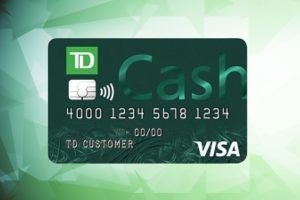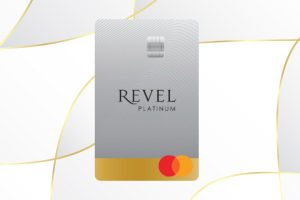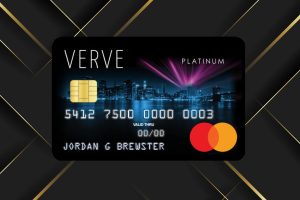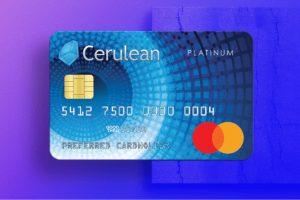High-interest credit card debt can feel like a heavy burden. With credit card APRs averaging 20.71 percent as of July 2024, many people are looking for ways to ease their financial load. Consolidating your credit card debt with a personal loan is a solid option. It could help you get a lower average APR of 12.35 percent, make payments easier, and help you reach your debt relief goals.
By getting a personal loan for debt consolidation, you can turn many high-interest credit card debts into one easy monthly payment. This method not only makes debt management simpler but can also save you money on interest over time. But remember, this option works best for people with a credit score of 670 or higher. If you’re in this group, a personal loan can give you a clear plan to pay off your debt and gain financial freedom.
Key Takeaways
- Consolidating credit card debt with a personal loan can offer an average APR of 12.35 percent.
- High credit scores (typically 670 or greater) may improve eligibility and loan terms.
- This financial strategy consolidates multiple debts into one fixed monthly payment.
- Streamlining your debt management can simplify repayment and reduce overall stress.
- Careful planning and commitment to the repayment plan are crucial for achieving debt relief.
Understanding Debt Consolidation
Debt consolidation is a way to merge several debts into one. This usually includes high-interest debts like credit card balances. It offers a single monthly payment, a lower interest rate, and a fixed repayment plan. This makes it easier to manage your payments.
What is Debt Consolidation?
Debt consolidation means combining your debts into one loan. By getting a personal loan with a lower interest rate, you can simplify your debt repayment. For instance, turning several high-interest credit card balances into one low-interest personal loan can cut down the interest you pay. This makes repaying your debt faster.
Credit counseling services can help you with this process. They offer advice on managing your money and creating a solid debt repayment plan. They can also talk to your creditors for you. This might lead to lower payments, waived fees, or changed due dates to make things easier for you.
Pros and Cons of Debt Consolidation
It’s important to weigh the pros and cons of debt consolidation. Here are some key points:
- Pros
- Lower interest rates can save you money over time.
- A single monthly payment makes managing your money easier.
- Fixed repayment schedules mean you know what to expect each month.
- Cons
- Some loans have initial low rates that can go up later.
- Even with lower monthly payments, you might end up paying more due to longer loan terms.
- If you don’t change your spending habits, you could end up with more debt.
There are different ways to consolidate debt, like personal loans, balance transfer credit cards, and home equity loans. Each has its own pros and cons. It’s important to think about these carefully before deciding which one is best for you. For example, personal loans usually have fixed rates, while balance transfer options might offer a zero-percent rate at first. Home equity loans can have lower rates but require you to use your home as collateral.
Benefits of Using a Personal Loan for Debt Consolidation

Using a personal loan to consolidate debt can make managing your debt easier and might lower your costs. Here are some key benefits:
Lower Interest Rates
Choosing a personal loan for debt consolidation can lead to a lower APR. As of July 2024, credit card APR averages 20.71%, but personal loans average 12.35%. A lower APR on a personal loan means you’ll save a lot on interest over time. This makes managing your debt easier and helps with your financial planning.
Single Monthly Payment
Debt consolidation often means combining several high-interest loans into one. This results in just one monthly payment. It simplifies your financial life, making it easier to keep track of your debt. With only one payment, managing your budget becomes simpler and missing payments is less likely.
Fixed Repayment Schedule
Personal loans usually have fixed repayment schedules, unlike credit cards. This means you know exactly when you’ll be debt-free. Having a clear payoff date helps with disciplined financial planning. It lets you predict your finances better and ensures you stay on track with managing your debt. Knowing when you’ll be debt-free gives you peace of mind and a sense of achievement.
| Loan Type | Average APR | Repayment Schedule | Manageability |
|---|---|---|---|
| Credit Card | 20.71% | Variable | Multiple payments |
| Personal Loan | 12.35% | Fixed | Single payment |
Choosing a personal loan to consolidate credit card debt brings many benefits. You get lower APRs, a simpler payment plan, and a fixed repayment schedule. These features make managing your debt efficient and stress-free.
Is a Personal Loan Right for You?
Deciding if a personal loan is right for you starts with understanding your finances. You need to look at your total debt and see if you can handle the repayment. This is key to making a good choice.
Evaluating Your Debt Situation
First, do a detailed financial assessment of your debt. Start by adding up all the money you owe on your credit cards. Then, think about how long it will take to pay it off and if a personal loan could make things easier.
- Personal loans usually have lower interest rates than credit cards, which makes your monthly payments easier to manage.
- Example: If you consolidate $10,000 in credit card debt into a personal loan with a 10% interest rate over five years, you’ll pay a total of $12,748. This saves you more than $9,000 compared to paying off the credit cards at 20% interest.
Don’t forget to consider things like origination fees, loan terms, and penalties. These can affect how affordable the loan is and if it’s a good choice for paying off your debt.
Assessing Your Credit Score
Your creditworthiness is crucial for getting a personal loan with good terms. A credit score of 670 or higher is usually needed for competitive rates.
- Using personal loans can help your credit mix, which is 10% of your credit score, and can raise your score if you pay on time.
- But, a hard credit check during the application can lower your score temporarily.
Talking to experts and using tools like a detailed rating system can help you pick the right loan. Look for flexible repayment options and great customer service in a lender.
| Consideration | Details |
|---|---|
| Interest Rates | 8% to 20% for personal loans, averaging less than 16%. |
| Credit Score Impact | Temporary drop due to hard inquiry, potential improvement with timely payments. |
| Fees | Origination fees, late payment fees, prepayment penalties. |
To see if a personal loan is right for you, make sure you can handle the new monthly payments without overextending yourself. Always carefully assess your debt and understand how your credit score affects loan terms before making a decision.
How to Consolidate Credit Card Debt with a Personal Loan
Consolidating credit card debt with a personal loan can help you manage your money better and save on interest. Here’s a simple guide to make it easier for you.
Check Your Credit Score
Start by looking at your credit score. It affects the interest rates you can get. Many lenders let you check your score for free. A better score means lower rates, which saves you money over time.
Calculate Your Total Debt
Use a debt repayment calculator to figure out how much debt you have. This tool adds up your credit card balances, monthly payments, and how long it’ll take to pay off. Knowing this helps you borrow only what you need, preventing you from borrowing too much.
Compare Lenders and Loan Terms
Do a deep dive into lender comparison. Look at APR, loan sizes, term lengths, and any extra fees. For instance, LightStream offers loans with APRs from 7.49% to 25.49%. This can greatly change your monthly payments and total interest. Be aware of fees like application, origination, and prepayment penalties. Using prequalification tools lets you compare offers without hurting your credit score.
Apply for the Loan
After finding the best loan, collect your financial documentation like proof of income and job. Then, fill out the application. Some lenders have quick online applications, often deciding in minutes. Once approved, they can pay off your current debts directly, making the switch easier.
By following these steps, you can consolidate your credit card debt well. This might lower your interest rates and monthly payments, helping you manage your money better.
Alternatives to Personal Loans for Debt Consolidation

Personal loans are often used to consolidate credit card debt, but there are other options to consider. Depending on your finances, balance transfer credit cards, debt management plans, and debt settlement programs could be good choices. We’ll look into these options to help you decide what’s best for you.
Balance Transfer Credit Cards
Balance transfer credit cards offer a 0% APR for 12 to 21 months, which can save you a lot on interest if you pay off the debt during this time. But, remember, these cards have a balance transfer fee, usually 2% to 5% of the total amount moved.
| Feature | Details |
|---|---|
| Promotional APR | 0% for 12-21 months |
| Balance Transfer Fee | 2-5% of the amount transferred |
| Post-Promotional APR | Variable based on the card’s terms |
| Credit Score Requirement | Varies, generally mid-600s and above for best offers |
Debt Management Plans
Debt management plans (DMPs) are run by credit counseling agencies. They help you pay off debt with structured monthly payments. These plans often have lower interest rates and no fees. When you join a DMP, you make one monthly payment to the agency, which pays your creditors.
But, you’ll need to close your credit cards to join, and your credit report will show you’re in the plan.
Debt Settlement Programs
Debt settlement is for those who’ve tried other debt relief methods and owe a lot, usually $10,000 or more. Companies in debt settlement talk to creditors to lower what you owe. This can be a big help, but it costs 15% to 25% of your debt. Also, it can hurt your credit score for years, and the debt forgiven might be seen as taxable income.
Risks and Challenges of Consolidating Debt with a Personal Loan
Consolidating debt with a personal loan has its benefits but also risks and challenges. One major risk is upfront fees. These can include origination costs or balance transfer fees, which might eat into the savings from lower interest rates. It’s important to understand and plan for these fees when thinking about debt consolidation.
Another challenge is the credit score impact. Applying for a loan means a hard credit check, which can lower your score. Also, opening a new account can make your credit history look newer, which might hurt your score. Keeping your credit use below 30% is key to avoiding a high-risk score.
It’s crucial to fix the reasons you got into debt. Just consolidating won’t help if you don’t change how you spend. Consolidation might tempt you to spend more, starting a cycle of debt again.
Secured loans, like home equity loans, add more risk. They offer lower payments but need collateral. If you can’t pay back, you could lose your home, threatening your financial security.
Here is a detailed comparison of potential financial risks and benefits associated with debt consolidation:
| Consolidation Method | Benefits | Risks |
|---|---|---|
| Personal Loans | Lower interest rates, single monthly payment, and fixed repayment schedule. | Loan fees, credit score impact, potential for more debt if spending habits aren’t addressed. |
| Home Equity Loans | Lower interest rates due to collateral. | Risk of losing home if unable to make payments. |
| Balance Transfer Credit Cards | 0% APR offers on balance transfers. | Balance transfer fees, temporary lower credit score from hard inquiry. |
Knowing the risks and challenges is key to making a smart choice about debt consolidation. Finding the right balance between quick relief and long-term stability helps ensure your choice meets your financial goals and keeps your credit in good shape.
Best Practices for Successfully Paying Off Consolidated Debt
Starting with debt consolidation is a big step towards financial health. But, it’s just the beginning. Using smart strategies can help you manage and pay off your debt. Here are some top tips to keep you moving forward.
Create a Budget
Having a budget is key to managing money well. It lets you set aside money for bills and debt. This way, you can track your spending and make sure you have enough for debt payments.
Essential Components of a Budget:
- Monthly income
- Fixed expenses (e.g., rent, utilities)
- Variable expenses (e.g., groceries, entertainment)
- Debt payments
- Savings contributions
For instance, if you owe $6,360 on credit cards, setting a monthly payment plan can help pay it down.
Automate Your Payments
Automating your payments is a smart move. It ensures you never forget to pay on time. This is important because your payment history makes up 35% of your credit score, says FICO. Lenders like LightStream offer a 0.50% discount for autopay, helping you save more.
Here’s a table showing the benefits:
| Lender | Loan Amount | APR Range | Repayment Term | AutoPay Discount |
|---|---|---|---|---|
| LightStream | $5,000 – $100,000 | 6.99% – 25.49% | 24 – 144 months | 0.50% |
| Upgrade | $1,000 – $50,000 | Varies | 24 – 84 months | N/A |
Track Your Progress
Keeping track of your debt reduction is motivating. Regularly checking your progress lets you see your financial wins. Use apps or spreadsheets to monitor your budget and debt plan. This helps you spot areas to improve your budgeting.
In summary, using budgeting, automating payments, and tracking progress can greatly improve your debt repayment. Stick with these strategies, and you’ll be on your way to being debt-free.
Frequently Asked Questions About Debt Consolidation Loans

Debt consolidation is a strategy for people with many debts. It combines several debts into one loan, making it easier to manage money. We’ll answer some common questions about debt consolidation to help you decide.
Can anyone qualify for a debt consolidation loan?
Getting a debt consolidation loan depends on your credit score. You usually need a score of 670 or higher for good terms. Some credit unions and online lenders might accept lower scores. Checking your credit score first is a good idea to see if you qualify.
What types of loans are available for debt consolidation?
There are two main types of debt consolidation loans: unsecured and secured. Unsecured loans don’t need collateral but have higher interest rates. Secured loans need collateral like a house or car but have lower rates. Here’s a quick comparison:
| Loan Type | Collateral Required | Interest Rates |
|---|---|---|
| Unsecured Loan | No | 6% – 36% |
| Secured Loan | Yes | Lower (varies by collateral type) |
How does debt consolidation affect my credit score?
Debt consolidation can help your credit score if you manage it well. Paying on time and lowering your debt can improve your score. But, missing payments can hurt your credit with late fees and a bad report.
What are the typical loan terms for debt consolidation?
Debt consolidation loans usually have terms from one to seven years. Knowing the loan length and monthly payments helps you decide if it’s right for you. For example:
| Loan Term | Monthly Payment (Example) |
|---|---|
| 1 Year | $850 |
| 3 Years | $290 |
| 5 Years | $180 |
Are there upfront fees associated with debt consolidation loans?
Yes, some lenders charge upfront fees for these loans, which can be hundreds of dollars. Always read the loan terms to know about any fees and understand the total cost of consolidating your debt.
What are the key benefits of debt consolidation?
Debt consolidation can save you money by lowering interest rates and simplifying payments. It can make managing debts easier and help you pay off debt faster.
Debt consolidation is a strategic way to manage and reduce your debt. By understanding these common questions, you can make a choice that fits your financial goals.
Conclusion
Starting a debt-free journey by consolidating credit card debt with a personal loan can change your finances for the better. It makes managing your money easier and might give you lower interest rates and a set payment plan. This can really help improve your credit health over time.
But, this isn’t right for everyone. You need to look closely at your financial situation. This includes your credit score, debt-to-income ratio, and what lenders offer.
To succeed in debt consolidation, you must make smart financial choices and avoid getting into more debt. Create a solid budget that focuses on paying off debt. Set up automatic payments to keep on track. And always check your progress.
Having an emergency fund is also key. It helps you cover unexpected costs without messing up your debt repayment plan.
Choosing how to consolidate your debt, like with a personal loan, balance transfer, or another option, requires careful thought. Make informed decisions to manage your debt well, lessen financial stress, and aim for a debt-free life. The main aim is to build lasting financial health and strength.










